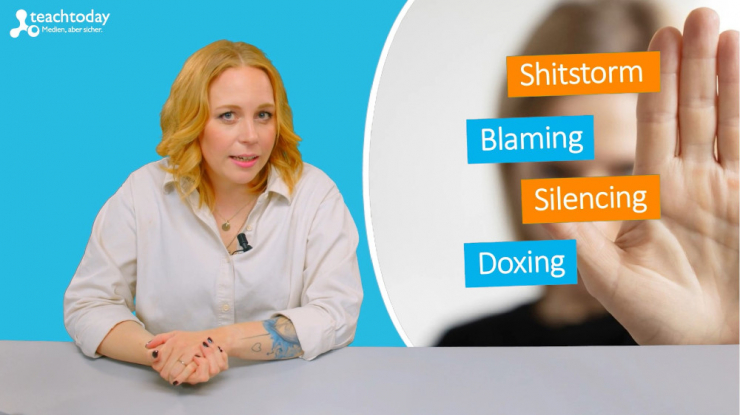Hate speech can affect anyone. It can be directed against individuals or entire groups. It is about abuse, insult, libel, slander, threats or incitement of the people. For this reason, hate speech is an important topic for today’s political and social education. But what is hate speech and what can be done about it?

The Committee of Ministers of the Council of Europe adopted a recommendation on hate speech back in 1997. It contains a definition of hate speech, which is mostly referred to in connection with the topic. Accordingly, the term hate speech includes “any form of expression which propagates, incites, encourages, promotes or justifies racial hatred, xenophobia, anti-Semitism or other forms of hatred based on intolerance, including intolerance, expressed in the form of aggressive nationalism and ethnocentrism, discrimination and hostility against minorities, immigrants and people with a migrant background”.
Hate speech must not be seen as an exclusive online phenomenon. However, the disinhibitory effect and the ability to reach as large an audience as possible quickly makes the Internet a popular platform for hate speech.
The UNESCO study identifies four initiatives against hate speech (see UNESCO 2015,16):
– early warning systems for the identification of hate speech,
– coordination of (inter)national coalitions,
– stronger reactions from social networks and service providers,
– promoting media literacy to prepare users for the interpretation of and response to hate speech.
However, since people who are committed to fighting hate speech can become targets as well, young people should also take care themselves and protect their own safety when offering “counter speech”.
No Hate Speech Movement
The aim of the Council of Europe’s pan-European campaign is to take an offensive stance against Internet agitation, develop counter-strategies and support those affected.
For freedom of expression - against agitation on the Internet
The appeal of the North Rhine-Westphalia State Institute for Media (LfM) against discrimination and agitation is aimed in particular at the operators of social media to meet their responsibilities more effectively than before.
www.jugend.support
The platform for young people provides support in solving Internet-related problems such as cyberbullying or violence online and provides information on risks associated with current internet phenomena.
 Find out about hate speech, what you can do about it and whether you are able to learn how to stand up for others in the digital space in our interactive module "digital civil courage"
Digital civil courage: Interactive learning module
Find out about hate speech, what you can do about it and whether you are able to learn how to stand up for others in the digital space in our interactive module "digital civil courage"
Digital civil courage: Interactive learning module
 In the anonymity of the digital world, it is important to support those affected by hostility.
We need digital moral courage
In the anonymity of the digital world, it is important to support those affected by hostility.
We need digital moral courage
My responsibility on the net!?
When does cyberbullying start?
SCROLLER

